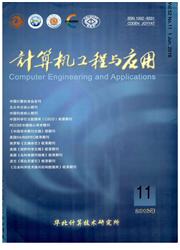

 中文摘要:
中文摘要:
针对船舶分段移动计划主要依靠人为预测及人工调度的现状,提出BP神经网络来预测一个周期内进出场分段的数量,并研究建立以分段移动度最小为目标的优化模型,模型综合考虑了分段在堆场中的停放位置及进、出场路径。通过分支定界法选择分段在堆场中停放位置的最优方案,并构建启发式规则来确定分段在堆场中的最优进、出场路径,从而实现对模型的求解。以某船厂实际数据为例,对模型在堆场调度问题中的应用进行了实例验证,结果表明,所研究方法可求解得出较优的堆场作业计划,并实现堆场资源的高效利用。
 英文摘要:
英文摘要:
The shipbuilding yards scheduling is overly dependent on artificial prediction and scheduling and lack of effective scheduling approach in practical production. The BP neural network is proposed to predict the number of sections which are shipped in and out in one period. Then a mathematical model is defined as the assignment and paths of the inbound and out- bound objects to the shipping yard with aim of minimizing the degree of movement of blocks. Then a branch and bound algo- rithm is formulated to select the optimal parking positions of blocks. And a heuristic algorithm is also proposed to confirm the optimal moving paths of blocks in the yards. Application data are obtained from a shipyard to validate the model, and the result shows that the proposed algorithm is effective to solve the shipbuilding yards scheduling problem.
 同期刊论文项目
同期刊论文项目
 同项目期刊论文
同项目期刊论文
 期刊信息
期刊信息
